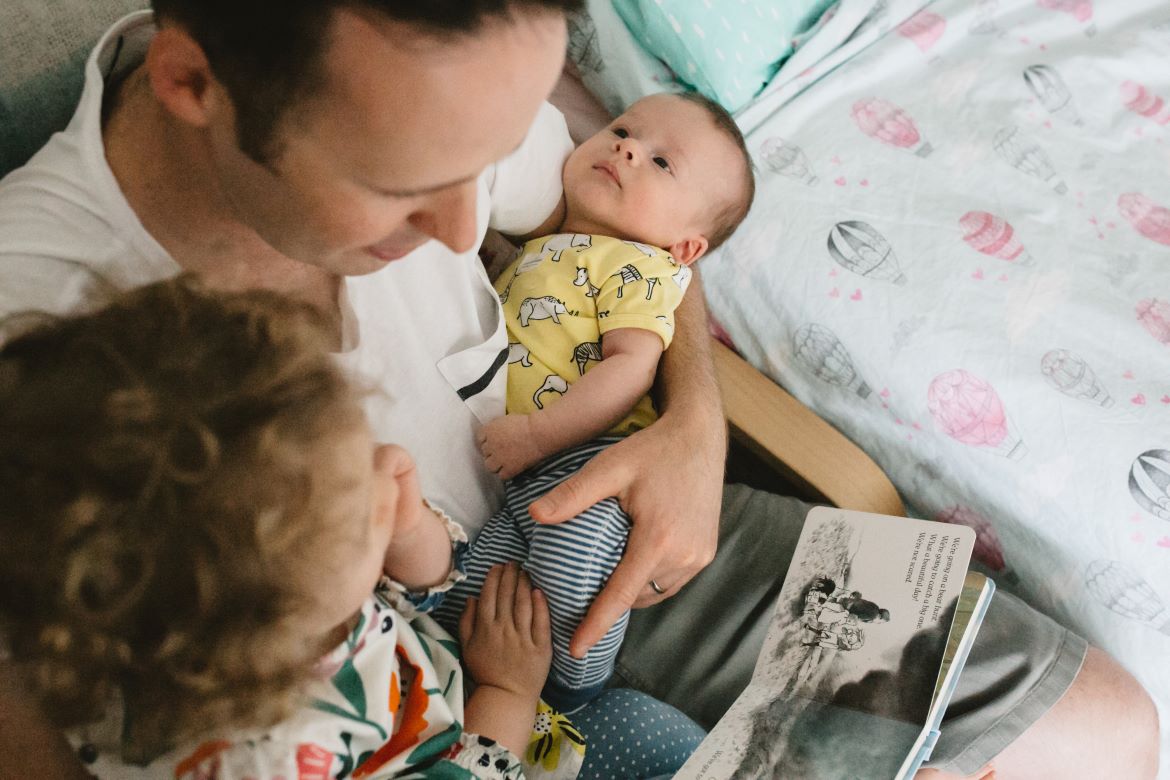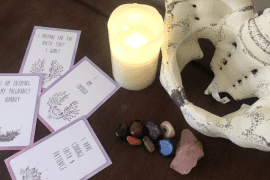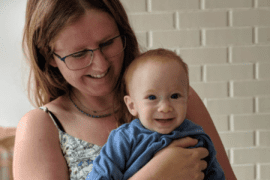By Eloise Rickman
As we enter a brand new year, it is a perfect time to celebrate what is working well in our family lives, as well as giving some thought to the areas that could do with a little gentle love and care. This is an opportunity to tenderly consider our relationships with our children and reflect on the rhythm and flow of our days. Do we have time to connect with our sweet ones each day? Are we calm, with balance in our days and weeks, or are we feeling overstretched and over scheduled? Do we have space in our lives for the things which delight us and bring us joy, as well as the laundry and taxes?
The value of rhythm
Building a strong yet flexible rhythm can support the whole family in connecting, slowing down, and prioritising the things which really matter. Children – young children especially – thrive on stability and flow. They often have little control over what happens in their lives; over where they need to be, what they are allowed to do, and what rules and limits are enforced. Infants are picked up and moved with no warning, toddlers bundled into the car at a moment’s notice, school-age children told they can’t watch TV on a weekday when they’re used to watching it at the weekend, teens given seemingly arbitrary curfews; children of all ages often have limited input into the structure of their days.
But having a strong rhythm, where daily life flows in a predictable way, can provide welcome security and comfort; a sense of ‘I am safe because I know what comes next, I know what is expected of me, and I understand that this is what we do’, be it taking dishes to the sink after each meal or making pancakes every Saturday morning. Our daily, weekly, and seasonal rhythms are the anchors which provide security to the whole family, reducing the stresses of uncertainty and reminding everyone of their place in a loving home.
Looking at the week as a whole allows you to see more clearly where you have space for more structure, or where there is too much already scheduled. It can also help you find more balance and ensure that, over the course of the week, everyone is getting their needs met, be those needs for physical exercise, time alone, or one-on-one time with parents.
If you are at home with your children, some gentle structure can really help your weeks feel more purposeful too, with a predictable flow of days.
Planning an activity each day – baking, a nature walk, painting, a trip to the playground – can help to give shape to your weeks. And when weeks are unpredictable, perhaps due to shift work or one parent working away, or other circumstances beyond your control, it’s even more important to craft strong rhythms around key anchor points in the day: mornings, meals, bedtime. Even if bedtime switches between parents, grandparents, and a babysitter, keeping the rhythm consistent will allow your children to feel more secure and confident that they know what’s happening to them.
This might sound as if I’m describing a routine, but whereas the words routine and schedule conjure up for me images of timetables, with minutes and hours strictly allocated to different tasks, rhythm is about creating days which flow in a predictable way. The anchor points of meals, bedtimes, and repeated daily, weekly and seasonal activities bring comfort and reassurance, and small rituals – lighting a candle before meals, singing little verses throughout the day, daily rest time – bring joy, connection, and delight. Anchors are the points in our days that our rhythms hang onto.
Whatever else happens, whatever might be going on, whatever changes are needed, having consistent anchor points holds our rhythms together, and provides stability and comfort.
By being intentional about the flow of our days, rhythm allows us to live in alignment with what matters to us, and it teaches our children that these things matter through regular repetition. Like it or not, how we live our daily lives teaches our children a great deal about what we believe matters the most. As Kim John Payne writes in his beautiful book Simplicity Parenting, the repeated tasks and rituals of our rhythm communicate that: “Meaning lies in repetition: We do this every day or every week because it matters. We are connected by this thing we do together. We matter to one another.” This is why taking some time to think about what your family values are, and your family needs to be happy and healthy, is so important when thinking about what a good rhythm might look like. When your rhythm is shaped by your family’s values and needs, those things have more chance of being reflected in your daily life, and understanding them is the key to creating a rhythm which truly works for you and your child, rather than following a cookie-cutter schedule which is designed for someone who lives a very different life to you. For example, if your family values adventure, planning in a monthly hike or camping trip will help you live in alignment with this; if you value reading, then sharing a few books after breakfast each morning will fit this well.











